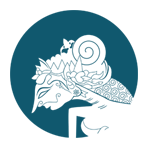Digitization of Oral Literature and its Problems in Literature Learning in Schools
 Country:
Country:
(1) Indonesian Education, University of Islam Malang, Indonesia, Indonesia
(2) Indonesian Education, UIN Sayyid Ali Rahmatullah Tulungagung, Indonesia, Indonesia
(3) Indonesian Education, UIN Sayyid Ali Rahmatullah Tulungagung, Indonesia, Indonesia
Abstract: Oral literature is one of the learning materials in schools. With the development of today's technology, bringing oral literature to a more modern world. The digitization of literature makes it easier for teachers to convey the essence of oral literature to students. However, with the digitization of oral literature, various problems have arisen. This research aims to explain various problems that occur in oral literature that is packaged in digital form. The method used is a qualitative descriptive method with a literature approach. The researcher collected data through the results of the analysis of various print media. From the results of the research, there are three problems that occur, including, 1) Oral literature that is converted into digital form can reduce the values of oral literature itself, 2) Oral literature consists of various elements, one of which is the flexibility of the storyteller. When oral literature is converted into video form, the flexibility of the storyteller will be frozen in the video. The taste and atmosphere created will also be different when oral literature is delivered in live performances and through videos, and 3) the digitization of oral literature that is not conveyed in accordance with the authentic work, can reduce the authentic values of oral literature itself which will later affect students' understanding.
Awalin, & Nur, F. R. (2018). Sejarah perkembangan dan perubahan fungsi wayang dalam masyarakat. Jurnal Kebudayaan Volume 3 (pp. 77-89). https://www.google.com/search?q=pertunjukan+wayang+pdf&oq=pertunjukan+wayang+pdf&aqs=chrome..69i57.6196j0j7&sourceid=chrome&ie=UTF-8#
Dewi, & Candra, A. K. (2019). Peningkatan keterampilan menulis puisi rakyat (pantun) menggunakan metode sugestopedia pada siswa kelas VII A SMP Negeri 1 Kunduran tahun pelajaran 2018/2019. (Skripsi, IKIP PGRI Bojonegoro). http://repository.ikippgribojonegoro.ac.id/148/1/Cover%2BLembarPengesahan%2BBab1-3.pdf
Dwipayana, & I Kadek, A. (2020). Inovasi pembelajaran apresiasi sastra lisan dalam konteks masa pandemi covid-19. Jurnal Stilistika Volume 9 (pp. 107-121). https://ojs.mahadewa.ac.id/index.php/stilistika/article/download/961/806/2889
Kamus Besar Bahasa Indonesia Edisi V.
Kastanya, & Helmina. (2016). Sastra lisan sebagai warisan seni dan budaya. https://kantorbahasamaluku.kemdikbud.go.id/2016/12/sastra-lisan-sebagai-warisan-seni-dan-budaya/
Kusumawati, Y. (2018). Pembelajaran sastra di sekolah. https://jatengpos.co.id/ pembelajaran-sastra-di-sekolah/arif/
Meigalia, E. & Yerri, S. P. (2019). Sastra lisan dalam perkembangan teknologi media; studi terhadap tradisi salawat Minangkabau. Jurnal Pustaka Budaya Volume 6 (pp. 1-8)
Moleong, L. J. (2015). Metodologi penelitian kualitatif. Bandung: PT. Remaja Rosdakarya Offsets.
Muhri. (2014). Sejarah ringkas kesusstraan Indonesia. Bangkalan: Yayasan Arraudlah Bangkalan.
Mujiyanto, Y., & Amir, F. (2014). Kitab sejarah sastra indonesia: prosa dan puisi. Yogyakarta: Penerbit Ombak.
Nurhadi, A. (2021). Pembelajaran sastra lisan dengan media audiovisual sebagai sarana pengembangan keterampilan bahasa. Seminar Nasional Pendidikan FKIP UNMA (pp. 548-557).
Pratama, C. D. (2020). Folklor: definisi, ciri-ciri dan bentuknya. https://www.kompas.com/skola/read/2020/12/15/164404169/folklor-definisi-ciri-ciri-dan-bentuknya?page=all
Purwati, P. D. (2019). Pengembangan model elektik berbasis nilai luhur pancasila dalam pembelajaran menulis puisi rakyat kelas VII SMP. Jurnal Pendidikan Bahasa dan Sastra Indonesia Volume 8 (pp. 18-28).
Ramadan. (2021). 10 Dampak positif dan negatif tik dalam bidang sosial. https://fikti.umsu.ac.id/10-dampak-positif-dan-negatif-tik-dalam-bidang-sosial/
Rosidah, C. T., & Rusminati, S. H. (2017). Mendongeng sebagai media menumbuhkan karakter dan nilai budaya bangsa pada siswa sekolah dasar. Jurnal Pendidikan Guru, 1(1), 40-50.
Setyawan, D. (2017). Tantangan sastra lisan di tengan era digital. (Prosiding Konferensi Nasional Sastra, Bahasa dan Budaya 2017.
Utami, S. N. (2021). Peran IPTEK dalam menunjang kegiatan ekonomi. https://www.kompas.com/skola/read/2021/03/07/184655369/peran-iptek-dalam-menunjang-kegiatan-ekonomi
Refbacks
- There are currently no refbacks.

This work is licensed under a Creative Commons Attribution-ShareAlike 4.0 International License.
The copyright is reserved to Research in Education, Technology, and Multiculture that is licensed under a Creative Commons Attribution-ShareAlike 4.0 International License.
Address:
CV. IMRECS: Jalan Gagak I, Kecamatan Larangan, Kota Tangerang. Postal Code: 15155
STKIP Al Islam Tunas Bangsa: Jalan Z.A. Pagar Alam No. 41 Gedong Meneng Bandar Lampung





